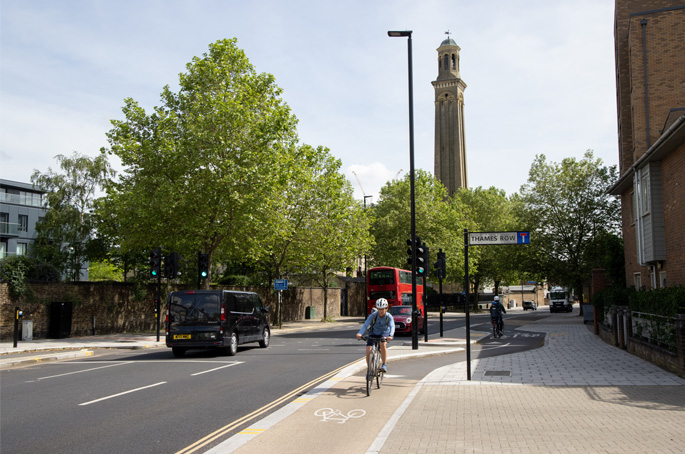It will not have escaped the notice of Highways readers that the Government published its Growth Plan last week with, I think it fair to say, mixed reviews. On one thing, though, all commentators seem to agree – this plan is Bold, and I make no apology for the capital B.
Time will be the judge of whether this boldness pays off – at the Foundation we aim to avoid being drawn into debate about political philosophy, and we leave the general analysis of fiscal policy to our chums at the Institute for Fiscal Studies.
We do, though, take a keen interest in the implications of government policy for transport infrastructure, particularly roads.
This is what the Plan has to say about roads: 'The Growth Plan … announces further sector-specific changes to accelerate delivery of infrastructure, including:
- prioritising the delivery of National Policy Statements for energy, water resources and national networks, and of a cross-government action plan for reform of the Nationally Significant Infrastructure planning system …
- reforms to accelerate roads delivery, including by consenting more through the Highways Act 1980 and by considering options for changing the Judicial Review system to avoid claims which cause unnecessary delays to delivery.'
Whilst in the coverage I've been hearing on the Plan the term ‘unprecedented' has been cropping up a great deal, Government enthusiasm for speeding up investment in infrastructure – including roads – is something of a hardy perennial. Despite being a path well-trodden, the suspicion remains that there must be some way of getting things going faster.

Perhaps this time the combined intellect and ingenuity of the ministers and officials at the Departments for Transport (DfT), the Department for Levelling Up (etc), and the Treasury will find the elusive key, though it will be interesting to see whether they find that it isn't so much the system itself as the nature of the concerns the system is there to identify and consider that turn out to be the sticking point when it comes to speeding projects on their way.
Anyway, flick through the Plan and things become even more interesting when you get to Annex B, because there you'll find not only 86 road schemes slated for acceleration (86! Count ‘em!) but also a list that encompasses a substantial slew of road safety enhancement schemes - schemes born of an initiative in which I'm pleased to say the RAC Foundation played a part, at the invitation of a particularly creative and forward-thinking official in the DfT.
Making our roads safer should be a priority for any Government, and it is therefore good to see that this Plan is clearly not just about speeding up schemes to deliver additional capacity – the schemes that lend themselves to a ribbon-cutting ceremony at some point. Yes, there are bypasses, widenings and junction improvements, yes, there's my old friend the Stonehenge Tunnel project (we're coming up to the 20th anniversary of my involvement with that one), but the clear message I take from this list is that if it's worth doing then let's get on and do it quickly.
What's more, further down the list you'll find the Local EV Infrastructure Fund and the Rapid Charging Fund – many of us have been saying the electric revolution needs more charge points and here's the Government saying ‘agreed – let's crack on'.
Putting to one side the rest of the chancellor's speech there are only three things I might flag up for a bit more attention on the roads front. The first is a paragraph in the Plan that bears all the hallmarks of small print – the conditions blurted out at high speed at the end of commercials on the radio:
‘Presence on this list does not guarantee, where applicable, funding, planning consent or approval for other regulatory or permitting processes.'
So the list is aspirational, rather than a commitment, scheme-by-scheme. Second, nowhere do I see the word ‘maintenance', ever the Cinderella of highway investments. Maybe it was too much to hope that maintenance would make its way into such a bold, sweeping policy announcement, but as Chancellor Kwarteng and his team at the Treasury settle into their new jobs I'd urge them, and Anne-Marie Trevelyan's team at DfT, to think about the beneficial economic stimulus that could be delivered through a substantial boost to maintenance funding, perhaps linked to some form of incentive to foster greater efficiency.
With such huge sums of money at stake, it must be time for the highways sector collectively to step up to the plate and play its part in making sure we get maximum bang for the taxpayer's buck.
But third, we were already facing significant cost pressures in the sector before September's dramatic fall of the pound's exchange rate – if that situation doesn't improve we risk being stuck with accelerating far less work that we'd otherwise all like to see.
Professor Steve Gooding is a former director general at the DfT and is the current director of the RAC Foundation.

























